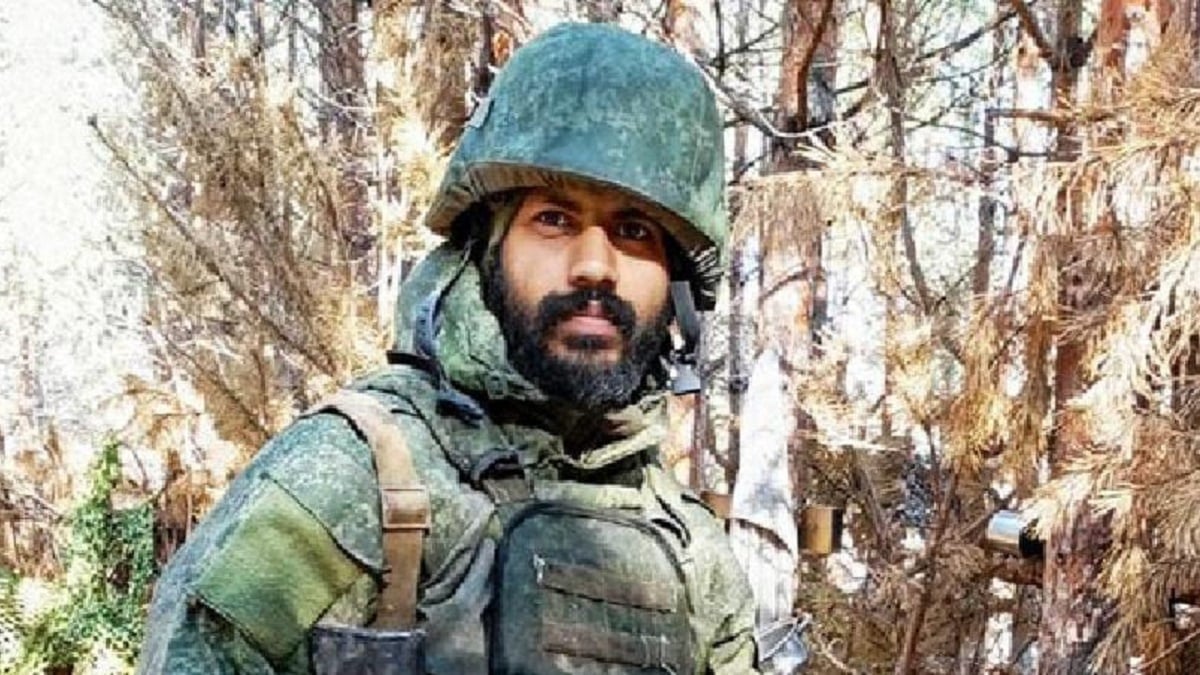Ukrainian forces capture two Cameroonians who say Russia tricked them into fighting. They signed for 1 million rubles

Two men from Cameroon sit in Ukrainian custody, telling a story that’s becoming disturbingly familiar. They came to Russia for work and tourism and ended up on the front lines.
Metugena Una-na Jean Pafe thought he was getting a job at a shampoo factory. Anatol Frank needed dental work and planned an 18-day trip to Moscow in 2024. Both claim they traveled to Russia for civilian purposes but were forced into military service against their will, according to video by the 20th separate unmanned systems regiment K-2.
“I wanted to leave the airport, but they [Russians] called me,” Pafe told his Ukrainian captors. “They checked my passport and took me to an office.This was all under coercion.”
Frank’s experience followed a similar pattern. Moscow’s migration service took his fingerprints and jaw impressions, then told him what to do. When he refused, they blocked his departure.
Ukrainian forces captured two men from Cameroon who say Russia tricked them into fighting a war they never wanted to join.
— Euromaidan Press (@EuromaidanPress) June 30, 2025
Metugena Una-na Jean Pafe thought he was getting a job at a shampoo factory. Anatol Frank needed dental work and planned an 18-day trip to Moscow in 2024.… pic.twitter.com/D5tGJyMwEM
Both men ended up signing military contracts worth 1.1 million rubles (over $14,000). Why sign? Ukrainian forces note this amount represents substantial money in Cameroon, even though it’s less than Russia offers its own citizens.
The military training moved them across Russia. Pafe spent two weeks in Moscow, one week in Rostov, then a month in occupied Luhansk. Frank also trained in Rostov before deployment.
How long did their combat service last? Not long.
Pafe’s bunker came under fire almost immediately. Six days after reaching the front, Ukrainian forces captured him. Frank got lost on his first mission, unable to understand orders in Russian. He wandered for three days in the rain, at one point hiding under a bush, before following voices that led to Ukrainian troops.
“While I was walking, there were drones above. It rained for three days,” Frank recounted.
During Frank’s nighttime evacuation, a Russian drone wounded two Ukrainian soldiers and Frank himself.
Both prisoners say they never killed anyone. They acknowledge Russia as the aggressor and want to return to Cameroon, where they have families. One prisoner has two sons waiting at home.
Are they alone? Far from it.
The regiment indicates this represents part of a broader pattern of foreign recruitment, with the prisoners claiming that Chinese, Zimbabwean, and Bangladeshi nationals are also present on the Siversk front, Donetsk Oblast.
Ukrainian forces previously also captured a Yemeni fighter. In early April, they captured Chinese nationals fighting for Russia—the first known case of Chinese military personnel in the war. President Zelenskyy says Ukrainian intelligence counts at least 155 Chinese citizens in Russian ranks.

Beijing denies involvement in war despite Ukraine finding 155 Chinese nationals fighting for Russia
Russia also deploys North Korean soldiers, particularly in Kursk Oblast, adding another layer to its international recruitment.
How widespread is this recruitment? An investigation by Important Stories found foreign mercenaries from at least 48 countries fighting for Russia. Moscow recruited over 1,500 foreigners between April 2023 and May 2024 in the capital alone. Most come from South and East Asia, with Nepal providing the largest contingent.
Besides Nepal, fighters arrive from India and African nations including the Republic of Togo. Such recruitment cases became more frequent at the end of last year.
Russia is also luring young African women with promises of vocational training and jobs in Europe, then trapping them in drone factories to build weapons for the war in Ukraine. Women from Uganda, Mali, Cameroon, Sierra Leone, Botswana, Zimbabwe, and South Sudan arrive at Russia’s Alabuga facility expecting education or legitimate work, but instead face grueling assembly-line shifts building Shahed attack drones under constant surveillance.
They work long hours exposed to harmful chemicals, endure racism and punitive management, while their wages are withheld and communications monitored, with some reports suggesting sexual exploitation as well.
The Russian Ministry of Defense finances this operation through fraudulent recruitment via social media and embassies, effectively turning vulnerable women into forced laborers for Moscow’s war machine.
Read also
-
State Department concerned about Chinese fighters captured in Ukraine
-
Ukrainian forces capture two Cameroonians who say Russia tricked them into fighting. They signed for 1 million rubles
-
Moscow recruits African women to produce drones in horrific conditions — investigation exposes large-scale fraud
-
Russia is buying African loyalty with trains and schools, Ukrainian intelligence says
-
Story of Ukraine is a Black experience, says African-American reporter

